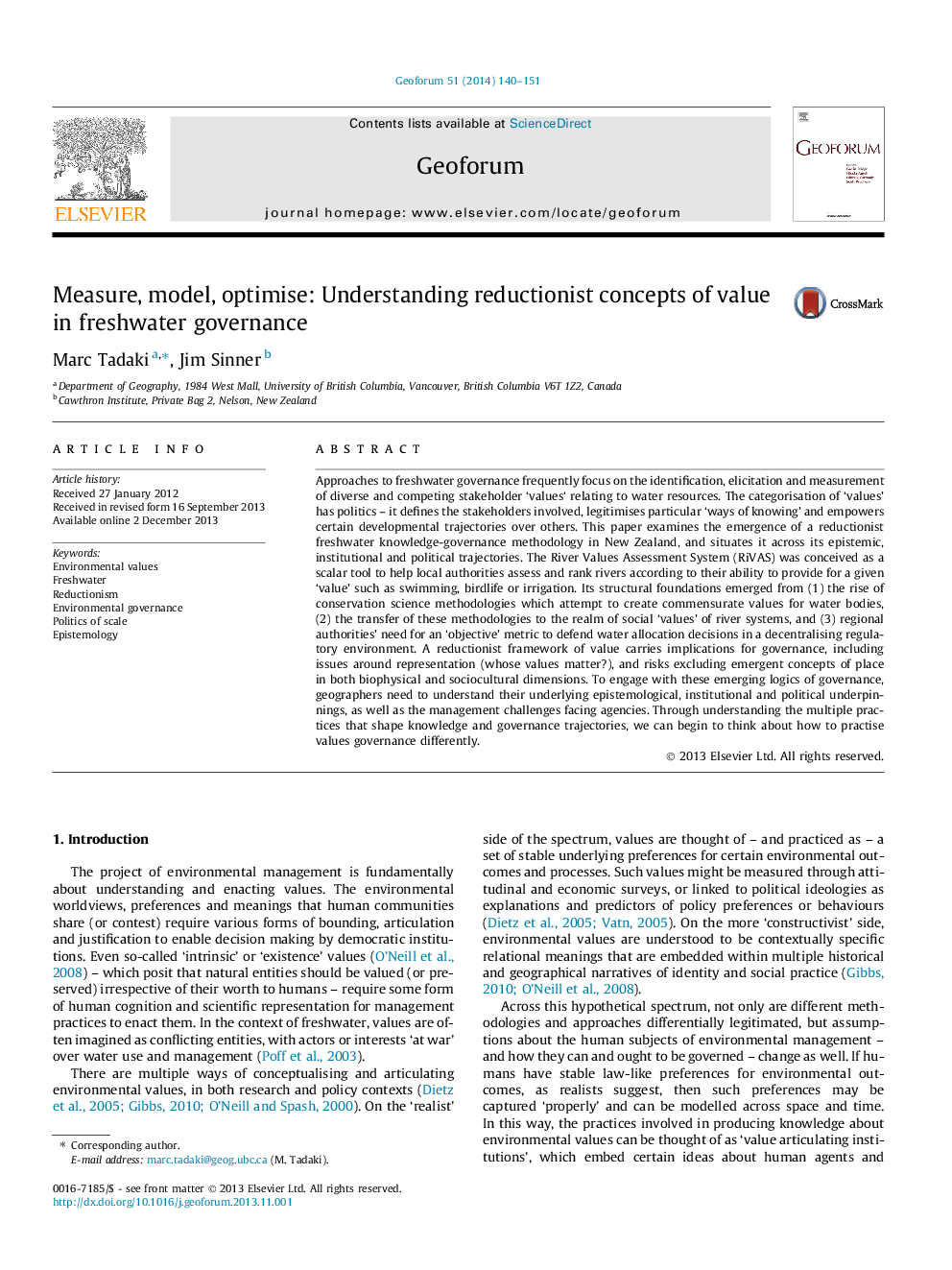| Article ID | Journal | Published Year | Pages | File Type |
|---|---|---|---|---|
| 5073906 | Geoforum | 2014 | 12 Pages |
Approaches to freshwater governance frequently focus on the identification, elicitation and measurement of diverse and competing stakeholder 'values' relating to water resources. The categorisation of 'values' has politics - it defines the stakeholders involved, legitimises particular 'ways of knowing' and empowers certain developmental trajectories over others. This paper examines the emergence of a reductionist freshwater knowledge-governance methodology in New Zealand, and situates it across its epistemic, institutional and political trajectories. The River Values Assessment System (RiVAS) was conceived as a scalar tool to help local authorities assess and rank rivers according to their ability to provide for a given 'value' such as swimming, birdlife or irrigation. Its structural foundations emerged from (1) the rise of conservation science methodologies which attempt to create commensurate values for water bodies, (2) the transfer of these methodologies to the realm of social 'values' of river systems, and (3) regional authorities' need for an 'objective' metric to defend water allocation decisions in a decentralising regulatory environment. A reductionist framework of value carries implications for governance, including issues around representation (whose values matter?), and risks excluding emergent concepts of place in both biophysical and sociocultural dimensions. To engage with these emerging logics of governance, geographers need to understand their underlying epistemological, institutional and political underpinnings, as well as the management challenges facing agencies. Through understanding the multiple practices that shape knowledge and governance trajectories, we can begin to think about how to practise values governance differently.
â¢Environmental 'values' can be performed in multiple ways.â¢Values can be reduced to attributes, allowing measurement and projection across time and space.â¢RiVAS reduces freshwater values for projection and assignment of levels of 'significance'.â¢Reducing values involves certain ontological and ethical propositions.â¢Reductionism occurs through many sites of discourse and knowledge production, and can be remade.
